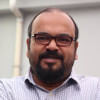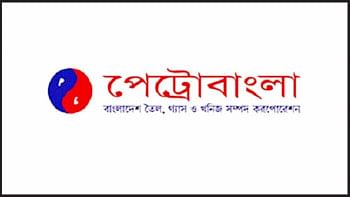Abul Barkat Memorial Museum: Of pride and inspiration

"Did you know, like me Abul Barkat was a graduate of Dhaka University?"
"The educated youth had ambitions and dreams; he also got enrolled in the master's programme at DU. But what made him stand out was an uncompromising love for his mother tongue," said Shahana Rahman.
Standing in front of a wall on the ground floor of a two-storey memorial complex, showcasing photographs and documents from 1947 to 1952 -- a complete, contextual history of the Language Movement -- the Bangla teacher spoke slowly and solemnly while her daughter, 14-year-old Saima Rahman, listened carefully.
Barkat could not accept the then Pakistan government's refusal to recognise Bangla as one of the state languages, and imposition of Urdu as the only official language of Pakistan.
It was the '50s -- a testing time.
On February 21, 1952, Barkat, fellow students and people from all walks of life took to the streets for establishing Bangla as the state language.
Police swung into action, firing teargas shells and beating up protesters. The battle between them and law enforcers spilled out on to the streets. As they kept marching, shooting began and Barkat got shot.
He passed away that night at Dhaka Medical College. He was buried at Azimpur graveyard.
"How old was he?" asked Saima.
"He would have turned 25 in June that year," Shahana told her.
Salam, Rafique, Jabbar, Shafiur and others also laid down their lives for mother tongue that day.
Pakistan government was ultimately compelled to include an article in its constitution on February 29, 1956 that declared, "The state languages of Pakistan shall be Urdu and Bengali."

However, Shahana proudly told her daughter, Ekushey did not just end there; it rather planted the seed of freedom in the hearts of Bangalis and 19 years after the Language Movement, an independent country named Bangladesh was born.
Shahana and Saima -- the mother and daughter duo -- were visiting the Abul Barkat Memorial Museum at Palashi intersection on Dhaka University campus on February 20.
The memorial opened on March 25, 2012 in honour of the language martyrs.
Right at the entrance of the memorial is a picture of Barkat, framed on a mosaic wall along with his short biography.
It mentions, in recognition of his sacrifice, Barkat was awarded the Ekushey Padak (posthumously) in 2000.
Inside, photographs -- collected over the years -- adorn much of the wall space, transporting visitors back to the days of the Language Movement when young souls fought for the right to speak in Bangla.
There is also a copy of the February 22, 1952, edition of newspaper The Azad, describing the incident.
To the right are photos of Abul Barkat and his family.
Copies of his certificates and personal letters; a photograph of Barkat's mother Hasina Begum inaugurating the Shaheed Minar; three tea cups used by Barkat; and an Ekushey Padak make up the display of his personal items.
"Names of Salam, Barkat, Rafique, Jabbar, Shafiur… are synonymous to Ekushey February. I've read about them in textbooks. But visiting this place helped me understand their struggle, how they stood up for what's right and made the ultimate sacrifice for our mother tongue," said Saima while looking at a photo of students at the historic Amtala.
There is also a digital information booth beside the stairs, which leads to the second floor -- a balcony-like library where shelves are stacked with books on the Language Movement and Liberation War.
Readers can utilise the reading space or buy books at 10 percent discount, said Md Abdul Mumin, security in-charge. He said around 20-25 people visit the place every day on an average. The number goes up in February. "It is also open for all."
Enamul Haque, an official at the museum, said, "We also arrange programmes in observance of Ekushey February."
Standing on the second floor, Khairul Alam, a student of social sciences at DU, was looking at the ground floor wall.
It contains a wall-to-wall painting of the events of the day -- protest, police brutality, portraits of the martyrs and nation paying homage to language heroes at Central Shaheed Minar.
"Every time I come here, I feel a sense of responsibility towards my culture and heritage," Khairul told this correspondent.
His friend, Mohaimanul Islam of Titumir College, was visiting the memorial for the first time. He said he was feeling melancholic, yet grateful at the same time.
Contacted, Dr Abu Md Delwar Hossain, director of the memorial, said, "Like every year, we have arranged a three-day programme to observe Amar Ekushey."
He said they also host events for children with Down syndrome.
"Usually, we organise the events on 22-24 February. But we had to change the dates to 27-29 as it was colliding with Charukala's (Faculty of Fine Arts) programmes," said Prof Delwar, also dean of the Arts Faculty.
"We have already notified schools in this regard," he added.
Meantime, Shahana and her daughter were about to leave the museum.
"Ekushey is not just about a nation's struggle for its right; it's also about enhancing awareness of linguistic and cultural traditions and to protect and promote linguistic diversity," said Shahana.
Shahana was right. Ekushey is also an achievement.
Such a passionate saga of sacrifice to establish an innate and sacrosanct right to a people's mother tongue was recognised as International Mother Language Day on November 17, 1999 by Unesco, and thanks to that, it has today become a source of inspiration worldwide for linguistic diversity and the right to express in one's own voice.

 For all latest news, follow The Daily Star's Google News channel.
For all latest news, follow The Daily Star's Google News channel. 



Comments